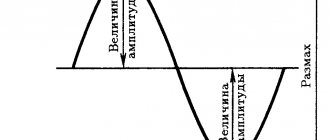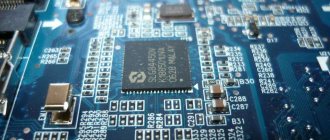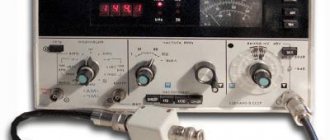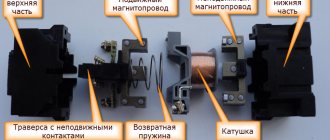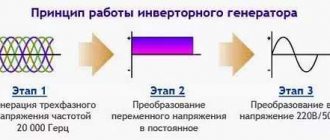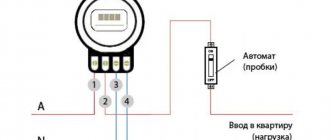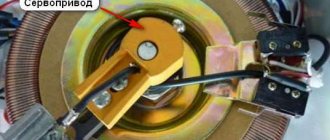Brief description of the specialty
The profile “Electrical power and electrical engineering” is part of the technical environment, which involves the use and improvement of electrical appliances and the training of qualified energy specialists who are able to successfully operate, maintain and repair special equipment. Agree that it is almost impossible to imagine reality and the world without electrical appliances. After all, even now you are reading this article with the help of a gadget, a computer, which is somehow “powered” by electricity, and therefore is an electrical appliance!
Electric power concept
The Electric Power and Electrical Engineering program is a general direction that emphasizes the main work qualities and points:
- Graduates will have to work in a specific segment - the electric power industry;
- Their work will be related to the operation, maintenance, repair, improvement of modern devices, tools, networks, etc.;
- Specialists will have to strictly observe safety precautions to preserve their own lives and health, because they do not play with electric current.
The scope of application of certified specialists of this plan is wide due to the wide range of positions, vacancies and acquired skills and competencies: from a simple electrician, electrical network installer, electrical equipment repairman to a power engineer, engineer, circuit designer, electrical system designer, etc.
Universities that offer this specialty
- Belarusian National Technical University (passing grades in 2013, 2014, 2015, 2016, 2017 )
- Belarusian State University of Transport (passing grades in 2013, 2014, 2015, 2016, 2017 )
- Gomel State Technical University named after. P. O. Sukhoi (passing scores in 2013, 2014, 2015, 2016, 2017 )
- Polotsk State University (passing grades in 2013, 2014, 2015, 2016, 2017 )
Composition of the educational program “Electrical power engineering and electrical engineering”
Let's figure out how and what students are taught within this specialization.
Disciplinary training is divided into thematic blocks, which gradually immerse students in the profession, concretizing their knowledge around a specific scientific field and practice. The fundamental subject is physics in all its subtypes and manifestations.
Educational process of students
The basic part of the program is taught during the first two courses. It is designed to prepare initial knowledge and minimal (basic) understanding and skills of future specialists. This module includes the following disciplines: general developmental - history, mathematics, Russian language, computer science, foreign language, cultural studies, sociology, philosophy, physics, chemistry, economics, information technology, fundamentals of mechanics, etc.
The core part of the training of future power engineers and electrical engineering specialists involves immersion in the disciplines. Developing relevant skills: mechanics, metrology and standardization, fundamentals of electrical engineering, technical mechanics, high voltage technology, energy supply, power plants, electric machines and units, electric drive, energy saving in electrical engineering and power engineering, electronics, ecology and environmental management, electrical and electronic devices, power electronics, design of electrical devices and units, operation of electrical systems and electrical equipment, etc.
The formation of future experts in the energy environment involves not only theoretical immersion, but also the implementation of practical tasks:
- To test and supplement the theoretical base - independent and test work, reports and abstracts, problem solving, work at seminars and workshops;
- Development of specific qualities within the framework of a certain science, general training - laboratory work, internship on the basis of existing energy companies under the supervision of an experienced mentor, generation of reports on practice, conducting scientific research%
- Research activities for a deeper immersion in the profile and development of scientific and technological progress: coursework, scientific articles, research, participation in conferences;
- Certification and control of acquired knowledge: tests (simple and differentiated), exams, testing, state assessments, defense of thesis or dissertation, etc.
It is important to note that completing these projects is mandatory for every student. He will encounter some research and work only once during his entire studies and life, while others he will encounter more often (several times a semester/week, etc.).
Writing scientific papers
Carrying out student and research work during the learning process is designed to develop specific skills: taking into account current standards and safety rules, accuracy, the ability to calculate and design each step/decision, justify a proposal, maintain technical documentation, show the effectiveness of measures, optimize the industry/company activities, improve technology/methodology of work or equipment, introduce innovations, etc.
A mandatory part of research and development work is the preparation of the following sections:
- The theoretical chapter should cover the basic terms, concepts, canons on the topic, emphasizing the importance of the problem and its unresolved nature if well developed;
- The practical part involves conducting an analysis (problem diagnosis) using the example of an object (city, region, enterprise, etc.), designing an action to solve the problem (planning, justification, technological process, economic efficiency), forecasting the results or testing, developing recommendations for the implementation of the proposal . It is important to note that a student cannot do without calculations, design, all kinds of graphic materials and drawings.
Certified specialists must have up-to-date information on their profile, know and use current standards and regulations, regulations, plan events, use innovations, and develop scientific and technical (“electric power”) progress.
The key skills of specialists in the field of electrical power and electrical engineering are: reading drawings, designing equipment and systems, installing and operating equipment/units and machines, rational use of energy resources, designing electrical systems, introducing innovations, etc.
What does he do?
An electrical power engineer is involved in the design of new and re-wiring of existing networks. He ensures the safe operation of electrical equipment and electrical facilities, develops maintenance and repair schedules for engineering systems and monitors their implementation.
To work in this specialty, it is necessary to understand the basics of production, transmission and distribution of electricity between consumers, as well as to understand the operating modes of electrical power equipment.
You can obtain the relevant knowledge and master a profession through professional retraining courses. Training is carried out remotely on the basis of existing higher or secondary vocational education.
Job responsibilities
An electrical engineer is responsible for the uninterrupted operation of an enterprise's electrical facilities. He draws up power supply diagrams, selects cables, electrical installation devices and switching devices that correspond to the loads, and also organizes the work of subordinate employees and interacts with control and supervisory organizations.
The specialist’s responsibilities include organizing and conducting scheduled preventive maintenance of equipment, monitoring the consumption of energy resources and developing measures for their more economical use.
An engineer in the field of energy and electrical supply monitors compliance with the requirements for technical operation and labor protection when using electrical installations, and also takes part in the review and approval of design documentation.
To solve these problems, a specialist must be able to draw up power supply diagrams for premises and equipment, as well as maintain documentation in accordance with PTEEP.
Career and salary
Jobs in the specialty can be found in resource supply organizations and enterprises specializing in the production of electrical switchboard equipment, switchgear, cables and generators.
The salary immediately after graduation ranges from 25,000 to 30,000 rubles per month. A leading engineer can earn up to 120,000 rubles monthly. The amount of income depends on the length of service in a similar position and the category of admission.
Where to study?
At the International Academy of Expertise and Assessment, you can obtain a profession as an engineer in the field of energy and electricity supply in 3 months on the basis of higher or secondary vocational education:
- One of the most affordable prices in Russia
- Fully distance learning from the comfort of your home
- Diploma of professional retraining of the established form
- Certificate of compliance with professional standards worth 10,000 rubles. For a present!
- Valid license for educational activities
- More than 14,000 graduates from 85 constituent entities of the Russian Federation.
You can find out more details and apply for training here: https://electrical equipment.professional-standard.rf
Electricity supply as part of the electric power industry
The power supply system is designed to transfer electricity from sources to consumers. This is a very important part of the electric power industry; the operation of industrial and agricultural enterprises, the provision of electricity, heat, water to the population, and the maintenance of life in general depend on it.
Electrical supply is a specialty in demand mainly in industry. Deep theoretical training is required. The scope of application of knowledge covers all stages of generation, transmission, organization of distribution to consumers and proper use of consumed energy. Knowledge in the field of electrical machines and devices, power supply, lighting and the study of electricity consumers is required. The training includes the entire range of disciplines in the field of electrical power engineering, thermal power engineering, energy economics, and enterprise management.
Professions after graduation:
- distribution network electrician;
- energy drink;
- electrical equipment specialist;
- design engineer for electrical supply and electromechanics.
